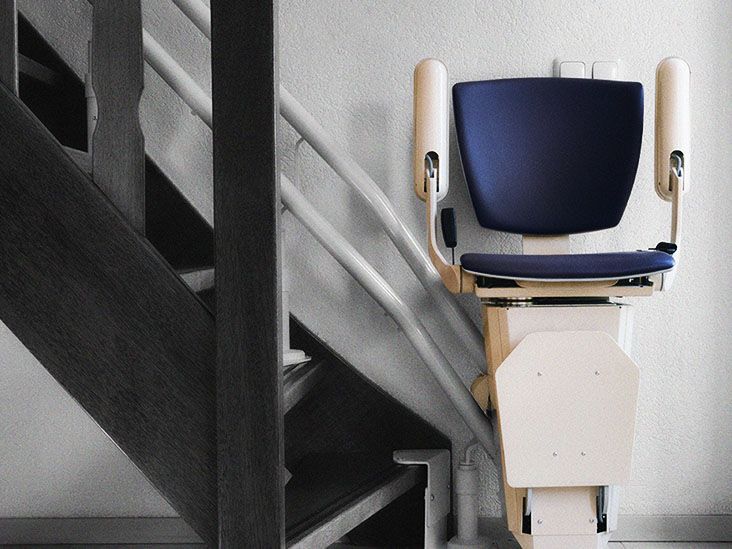Hey there! If you're reading this, chances are you're either about to turn 65, helping someone who is, or maybe you're dealing with a situation that makes Medicare eligibility a little confusing. Let me start by saying something really important: you don't have to figure this out alone. Medicare enrollment can feel like navigating a maze in the dark, but I'm here to turn on some lights and walk through this with you.
You know that feeling when you're trying to assemble IKEA furniture without the instructions? That's exactly what Medicare enrollment can feel like for so many people. But unlike that bookshelf that's now permanently wobbly, we can get your Medicare setup right the first time. Let's break this down in a way that makes sense for real people dealing with real situations.
Understanding Your Medicare Basics
Let's start with the foundation. Who actually qualifies for Medicare automatically? Well, it's not just about age though that's the most common path. If you're turning 65, you're probably wondering "do I even need to do anything?" The answer depends on whether you're already getting Social Security benefits.
If you are receiving Social Security, congratulations the process starts for you automatically about three months before your 65th birthday. You'll get a Medicare packet in the mail that's basically saying "Hey, we've got you covered!" But here's the thing you still need to review it carefully. Sometimes people want to decline Part B because of the monthly premium, and that's totally okay, but you want to make that choice intentionally.
What if you're not on Social Security yet? No worries you still qualify for Medicare at 65, but you'll need to actively sign up. This is where a lot of people get tripped up. You have a seven-month window to enroll (three months before your birthday month, your birthday month, and three months after). Miss that window? You could face penalties that last for years. Yikes!
Now, let's talk about some of the less obvious paths to Medicare eligibility. Did you know that after 24 months of receiving Social Security Disability Insurance (SSDI) benefits, you automatically qualify for Medicare? It's true! And if you have ALS (Lou Gehrig's disease), you don't even have to wait the full 24 months coverage kicks in immediately. Life-changing, right?
There's also End-Stage Renal Disease (ESRD), though the rules here are a bit more complex and can depend on your specific situation. The key takeaway is that Medicare isn't just for seniors it's there for people with certain disabilities too.
When it comes to what parts you get automatically, here's what typically happens: Part A (hospital insurance) usually comes free since you've likely paid into the system through payroll taxes throughout your working years. Part B (medical insurance) requires enrollment and comes with a monthly premium though the amount can vary based on your income.
Timing Is Everything
Okay, let's talk about timing because this is where things can get sticky. Your Initial Enrollment Period (IEP) is that seven-month window I mentioned earlier. Think of it like a window of opportunity and just like any good opportunity, it doesn't last forever.
What happens if you miss your IEP? Well, that's where things get a bit more complicated. Unless you qualify for a Special Enrollment Period (SEP), you're looking at the General Enrollment Period, which runs from January 1 to March 31 each year. But here's the kicker your coverage won't start until July 1. That's a gap of potentially six months without coverage, and during that time, you're exposed to full medical costs. Not ideal, right?
Special Enrollment Periods are like lifelines for people in specific situations. Maybe you moved across the country, lost employer coverage, or were recently released from incarceration. These qualify as SEPs, which means you get another chance to enroll outside the normal windows. But you've got to know your situation qualifies that's where getting good Medicare enrollment help becomes crucial.
I remember helping a friend navigate this exact situation. She'd been working for a company that provided great insurance, but when she turned 65, she assumed Medicare would just kick in automatically. She missed her IEP by two months and spent the next half year paying for everything out of pocket. It was a wake-up call for both of us about how important it is to understand these timelines.
Your Best Help Resources
Here's the good news you're not alone in this, and there are legitimate, helpful resources available to you. The Social Security Administration is where most people start their Medicare journey. You can handle everything online these days, over the phone, or in person if you prefer face-to-face help. I always tell people to try the online option first it's often faster and you can do it in your pajamas!
The Medicare.gov website is another treasure trove of information. Medicare.gov isn't just for looking up basic information they have some really sophisticated plan comparison tools that can help you make sense of all the options out there. Whether you're looking at Original Medicare with supplements or considering Medicare Advantage plans, their tools can help you compare apples to apples.
Have you ever called the 1-800-MEDICARE hotline? It's staffed 24/7, which is pretty incredible when you think about it. They're great for quick questions like "What's my deductible?" or "When does my coverage start?" but I wouldn't rely on them for complex planning situations.
Now, here's where things get really interesting State Health Insurance Assistance Programs, or SHIPs. These are funded by the federal government but operated at the state level, and they're staffed by trained volunteers who genuinely want to help you. I can't say enough good things about SHIP counselors. They understand not just the federal Medicare rules, but also the specific nuances in your state.
I'll never forget the SHIP counselor who helped my neighbor figure out that she qualified for both Medicare and Medicaid assistance something called "dual eligibility." Without that guidance, she would have been paying hundreds of dollars a month that she didn't need to pay. These counselors can help you apply for programs like Extra Help with prescription drug costs or Medicaid Savings Programs that can significantly reduce your expenses.
Costs and Consequences
Let's talk about something that makes most people uncomfortable money. Specifically, what happens when you delay enrollment. This is where a lot of people make decisions based on emotion rather than information, and that can be costly.
The late enrollment penalties for Part B are pretty straightforward but potentially devastating over time. For every year you could have had Part B but didn't sign up (and don't qualify for an SEP), your premium goes up by 10%. That penalty stays with you for as long as you have Part B. So if you delay three years, you're paying 30% more for the rest of your life. Ouch!
Part D (prescription drug coverage) has similar penalties. If you go without creditable drug coverage for 63 days or more after your Initial Enrollment Period, you could face a monthly penalty for as long as you have Part D. Creditable coverage means coverage that's at least as good as standard Medicare Part D and this includes employer retiree coverage, so be sure to check!
But the financial hit isn't just about penalties. Think about those coverage gaps I mentioned earlier. What happens if you have a medical emergency during that six-month window when you're not covered? You're on the hook for 100% of those costs. I've seen people face bills in the tens of thousands for what should have been covered expenses. It's not just about the money it's about peace of mind.
Why Professional Guidance Matters
I know what some of you are thinking "I can figure this out on my own." And you know what? You absolutely can. But here's the thing about complex situations sometimes having an experienced guide makes all the difference. It's like having a tour guide in a foreign city rather than trying to navigate with just a map.
Not all "help" is created equal, though. There's a big difference between licensed insurance agents who are required to act in your best interest and aggressive marketers who are pushing specific products. Be wary of those "free" seminars where they're giving away coffee mugs and talking up one particular plan. That's not guidance that's sales.
Here's where professional help really shines: complex health situations, coordinating employer coverage, and dual eligibility cases. If you're dealing with multiple chronic conditions, have employer coverage that's continuing past age 65, or think you might qualify for both Medicare and Medicaid, getting help from someone experienced can save you stress and money.
I want to share something that happened to a friend of mine who thought she didn't need help. She had a pretty standard situation employer coverage ending at 65, straightforward health needs. But she spent weeks trying to understand the difference between Medigap plans, got overwhelmed, and ended up choosing a plan that cost her $200 more per month than she needed to pay. When she finally talked to a SHIP counselor, she realized she could have saved that money and gotten better coverage. The lesson? Even "simple" situations can benefit from a quick consultation.
Making Your Decision
As we wrap this up, I want you to take away one thing above all else: you have options, and you're not alone. Whether you choose to handle everything yourself using the resources at Medicare.gov, connect with a local SHIP counselor, or work with a trusted insurance professional, there are legitimate paths to getting the help you need.
The key is starting early and staying informed. Don't wait until the last minute your health coverage is too important for that. Take some time to understand your specific situation, know your enrollment periods, and don't be afraid to ask questions.
Remember my friend who missed her enrollment window? She learned that having a support system matters. She now volunteers with her local SHIP program, helping other people avoid the mistakes she made. That's the beautiful thing about communities we look out for each other.
What's your next step going to be? Whether it's setting a reminder for your enrollment period, calling your local SHIP office, or simply bookmarking Medicare.gov for future reference, taking that first step makes all the difference. And if this article helped you feel a little more confident about the process, I'd love for you to share it with someone else who might be navigating Medicare enrollment. Sometimes the best help we can give each other is just pointing in the right direction.
You've got this. Millions of people successfully navigate Medicare enrollment every year, and you're about to join their ranks. With the right information and support, you'll have coverage that gives you the security and peace of mind you deserve.
FAQs
When should I enroll in Medicare to avoid penalties?
You should enroll during your Initial Enrollment Period, which starts three months before your 65th birthday and ends three months after. Missing this window may result in late enrollment penalties.
Do I automatically get Medicare when I turn 65?
If you're already receiving Social Security benefits, you’ll be enrolled automatically in Part A and B. Otherwise, you must actively sign up during your Initial Enrollment Period.
What happens if I miss my Medicare enrollment deadline?
You may face late enrollment penalties and a gap in coverage. You could qualify for a Special Enrollment Period if you have specific life circumstances like losing employer coverage.
Can I get help signing up for Medicare for free?
Yes, State Health Insurance Assistance Programs (SHIPs) offer free, unbiased help with Medicare enrollment. You can also use Medicare.gov’s tools or contact Social Security directly.
Do I need Medicare Part B if I have employer insurance?
It depends on your situation. If your employer coverage is through your or your spouse’s current job, you might delay Part B without penalty. Consult a Medicare expert to be sure.
Disclaimer: This article is for informational purposes only and does not constitute medical advice. Always consult with a healthcare professional before starting any new treatment regimen.
Related Coverage
Get clear info on Medicare Arizona options, including Part A, B, C, and D. Find the best plan for your health and budget in 2025....
Learn how long Adderall stays effective for ADHD symptoms with immediate and extended release forms. Get tips for timing doses and minimizing ongoing side effects....
Dying and dieing are often confused due to similar spellings. Learn the proper uses of dying, why dieing is incorrect, and tips to remember the right word....
Medicare funeral coverage isn't included in standard plans. Find out what options exist to help with end-of-life costs....
Find out how Medicare hospice coverage works, the benefit periods, what's covered, costs and how long you can receive care....
Doing crossword puzzles and word games regularly helps maintain mental sharpness while providing physical health benefits that support healthy aging across areas like memory, mood and lifespan....
Learn how to change Medigap policy without medical underwriting, when guaranteed issue rights apply, and steps to switch safely....
Compare Medicare Plan G vs N to get lower premiums, fewer copays, and protection from excess charges, you can pick the best fit....
Aging in place lets you stay in your home safely with the right planning, support, and simple modifications. Start your journey today....
Compare Michigan Medicare plans and choose the right coverage for your health needs. Get support and save money....









